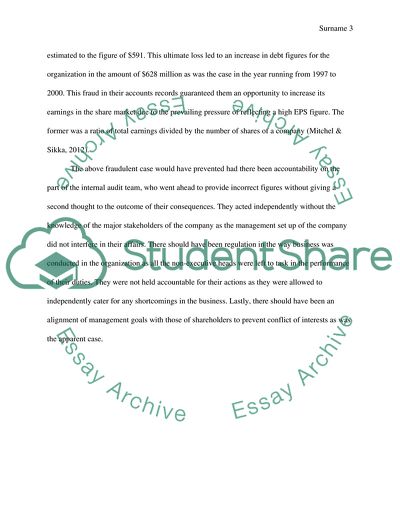Intermediate Financial Accounting - Accounting scandals Essay. https://studentshare.org/finance-accounting/1774263-intermediate-financial-accounting-accounting-scandals
Intermediate Financial Accounting - Accounting Scandals Essay. https://studentshare.org/finance-accounting/1774263-intermediate-financial-accounting-accounting-scandals.


